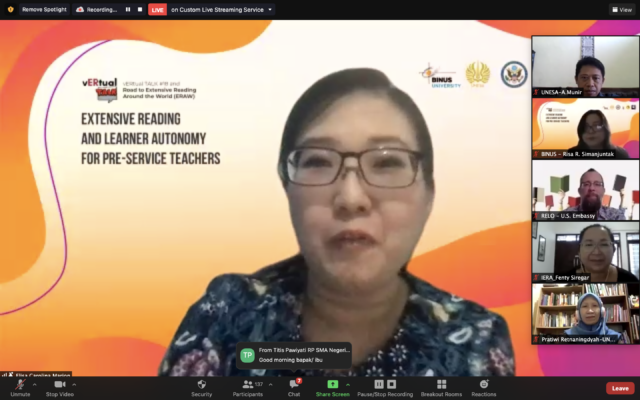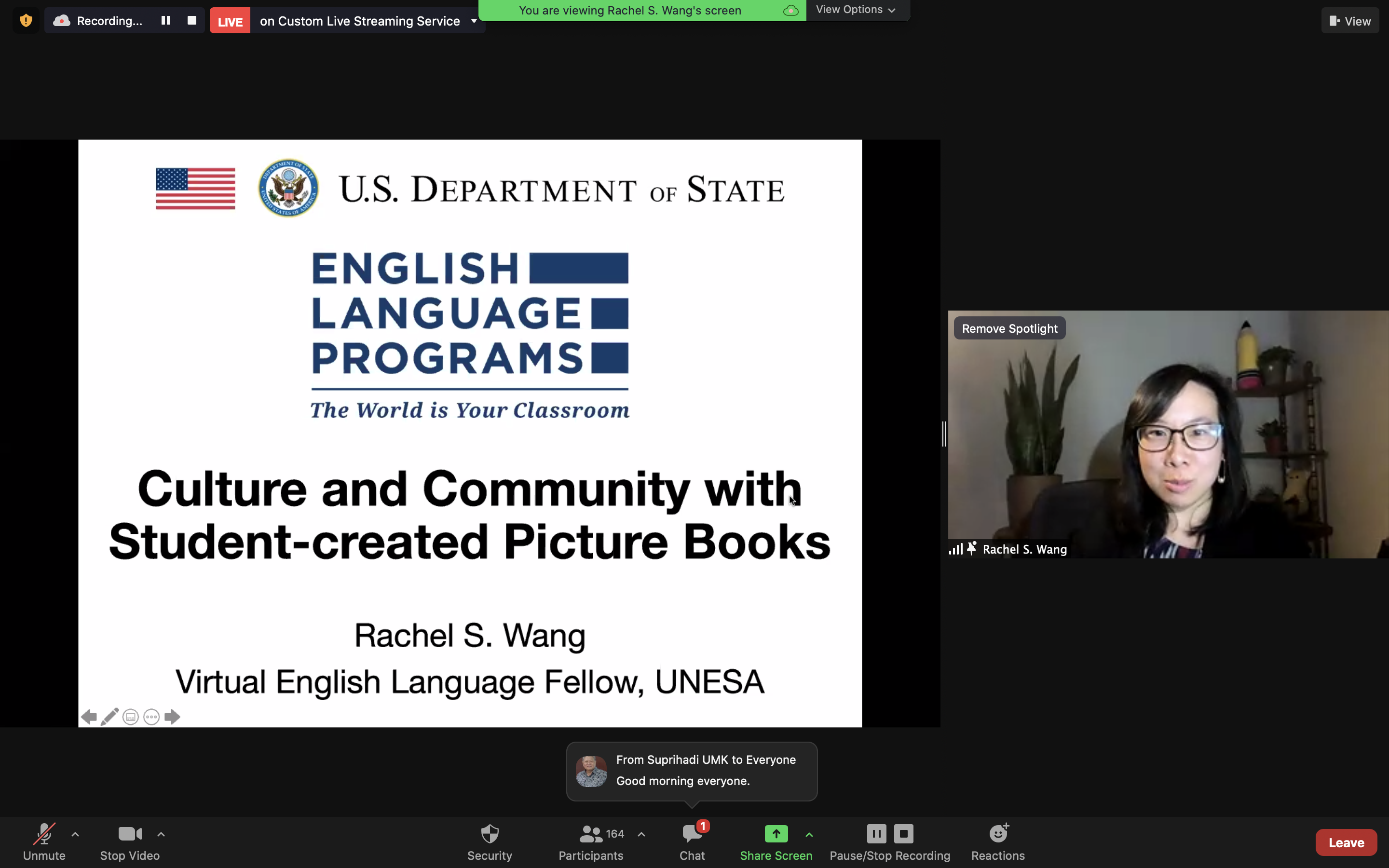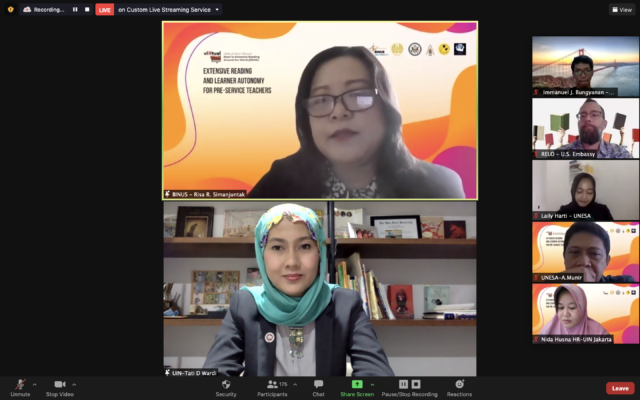Some notes on Extensive Reading and Learner Autonomy webinar
prepared by Vanessa & Raras Prajnasmita, Binusian 2021, English department
Books bring us together
One of the benefits of learner autonomy is an independent learning decision granted to every reader to choose the book they want to read. Through children book and pictures, students can be introduced to hobbies, culture, and get involved in the process by reading it together out loud. Rachel Wang, the first speaker, told her experience teaching and introducing the picture book in UNSRAT (Universitas Sam Ratulangi), Ternate, Manado, UNESA, NYC, Japan, China, and US. She believed that reading is for fun, not a homework. Thus, she suggested to build the reading habit as early as possible using the picture book. She taught her students as a pre-service teacher to teach other children about extensive reading and learning autonomy. They read it out loud in the class and each of them even created illustration for the books themselves. The result of the activity was everyone has a small story book of their own.
 Our Dean, Dr.Elisa Carolina Marion, S.S., M.Si. gave her opening remark
Our Dean, Dr.Elisa Carolina Marion, S.S., M.Si. gave her opening remark
The language focus of the extensive reading and learning autonomy can be changed according to the teacher’s heart content. It can be grammar, vocabulary, transition word (narrative), pronunciation.
The steps for the mini book project are:
- The teacher reads children book out loud as an example.
- Watching a Youtube video about a person reading children book out loud as an example.
- Introducing students to the topic (example: using transitions such as suddenly, finally, etc.)
- Creating a storyboard.
- Peer feedback including positive and constructive feedback, what to improve and it doesn’t have to be a critic.
- Practicing reading out loud (stress, intonations, etc.)
- Present the books to the classmates and it can be presented to the small group if the class is bigger.
Why storybook?
- To share culture,
- Provide learning autonomy,
- Practice integrated skills,
- Build community,
- Easily adaptable for all levels.
Literary texts are integral part of literacy development
The second speaker, Tati Wardi Ph.D., stated that literacy education revolves around developing one’s ability to engage with written language. Thus, the study in literature is necessary because it could help students to feed the needs for story and develop foundation in literature. It could also help nurturing the critical thinking of the students. Teachers who are familiar with reading response are more likely to invite students to give response and have a discussion rather than the teacher who relies on textbook.
Literacy is a process that requires both constant and gradual process. Children’s literature is aesthetic literary object that offers rich and meaningful literacy education ideas. The potential can only be optimized when there is a deliberate effort to nurture students’ ability to making meaning with text, i.e., being actively engage with reading text through reader response approach. Considering the crucial role of having knowledgeable literacy / literature teachers, one pressing need is to design a solid teacher preparation that attends to the intertwined identities of both being a reader and teacher.




 Dr. Risa R., Simanjuntak, S.S., M.App.Ling., M.A. Our moderator and Tati Wardi, Ph.D., the second speaker
Dr. Risa R., Simanjuntak, S.S., M.App.Ling., M.A. Our moderator and Tati Wardi, Ph.D., the second speaker
Comments :